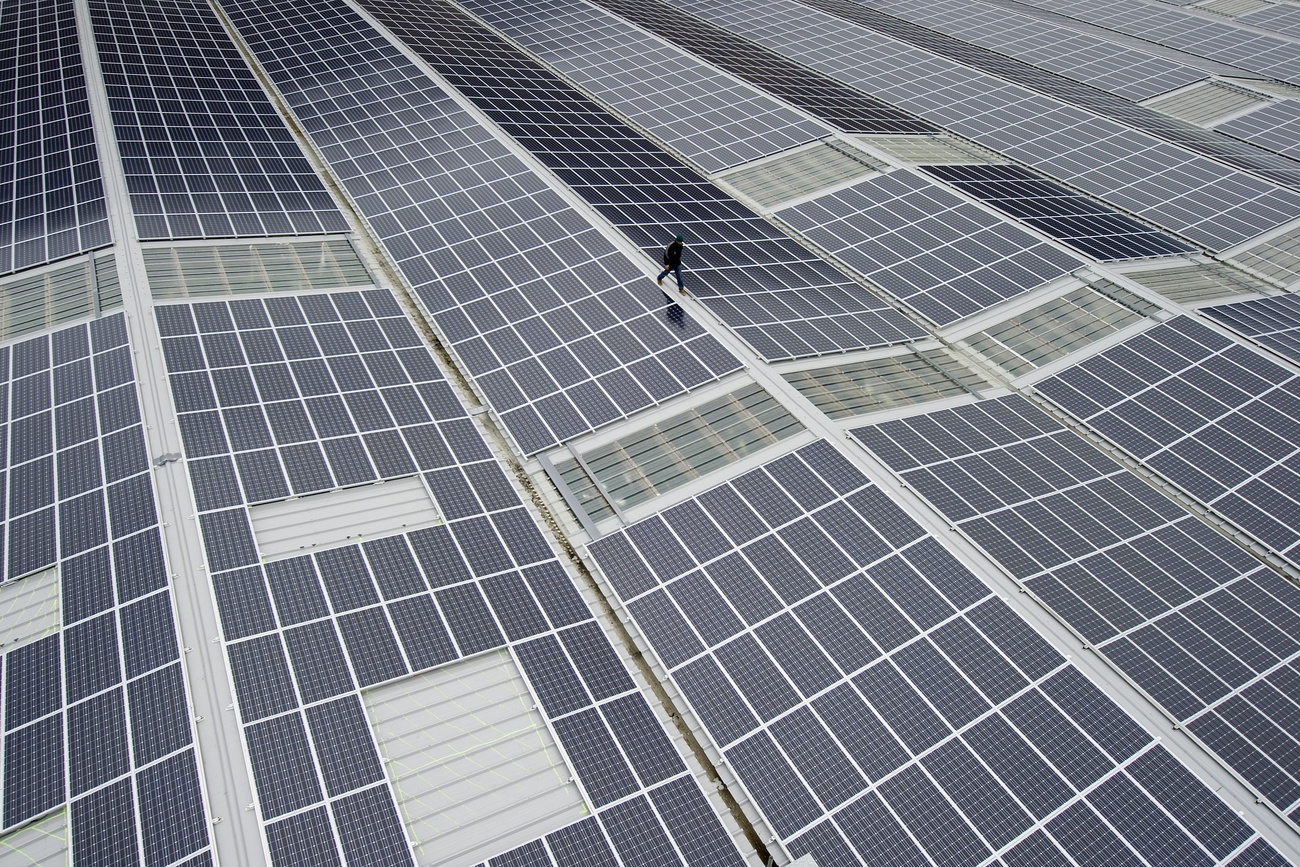Federal Council banks on R&D to strengthen Swiss solar industry

The Swiss government opposes the introduction of special industrial policy or measures to help boost the domestic photovoltaic industry. Switzerland’s strong research and development programmes are making an important contribution to the development of the European solar industry, it says.
Check out our selection of newsletters. Subscribe here.
According to a government report released on Friday, Europe and Switzerland are heavily dependent on the Chinese solar industry. Due to imports of solar panels from China, photovoltaic prices in Europe in 2023 were lower than ever before. The report cites 15 eurocents per watt and less. In contrast, manufacturing costs in Europe are in the region of 30 eurocents per watt.
Measures with limited impact
The International Energy Agency (IEA) estimates that production costs in China are around 35% lower than in Europe. This is also due to lower energy prices and labour costs. Without subsidies, the production of solar panels outside Asia is unlikely to be competitive at present.
+ Switzerland needs energy, but what kind?
Industrial policy measures have been taken in various regions to counter this dependency. In the United States, for example, the ‘Inflation Reduction Act’ is intended to strengthen the domestic industry in the area of clean energy technologies. According to the report, there are similar endeavours in the European Union with the ‘Net-Zero Industry Act’.
+ Switzerland trails other European nations in solar and wind power
According to this year’s ‘Situation Report on the Swiss Economy’ published by the Federal Department of Economic Affairs, Education and Research (EAER), such measures abroad only have a limited impact on Switzerland as a business location, the government said in its press release on Friday. For this reason the Federal Council is against the deployment of special industrial policy measures.
Major contribution from research
Research and development in Switzerland contribute a great deal to the development of the photovoltaic industry worldwide, the Federal Council stated, adding that Swiss photovoltaic research and development is well placed.
The government also points to the continuous funding of projects by the public sector. This invests a comparatively large amount in photovoltaic research.
It says solar panels are indeed relevant for the expansion of the supply of renewable energies. However, unlike essential goods – food or medicines – they do not have to be available at all times.
The government also points out that establishing or expanding the production of photovoltaic modules would currently be expensive in view of subsidies abroad. It is also not to be expected that this would reduce dependence on foreign countries to any relevant extent.
This is because Swiss producers would have to procure raw materials abroad. In addition, they are associated with high risks of misallocation at the expense of taxpayers and would lead to deadweight effects and unequal treatment compared to other sectors, it states.
Adapted from German by DeepL/kc/sb
This news story has been written and carefully fact-checked by an external editorial team. At SWI swissinfo.ch we select the most relevant news for an international audience and use automatic translation tools such as DeepL to translate it into English. Providing you with automatically translated news gives us the time to write more in-depth articles.
If you want to know more about how we work, have a look here, and if you have feedback on this news story please write to english@swissinfo.ch.

In compliance with the JTI standards
More: SWI swissinfo.ch certified by the Journalism Trust Initiative


















You can find an overview of ongoing debates with our journalists here . Please join us!
If you want to start a conversation about a topic raised in this article or want to report factual errors, email us at english@swissinfo.ch.